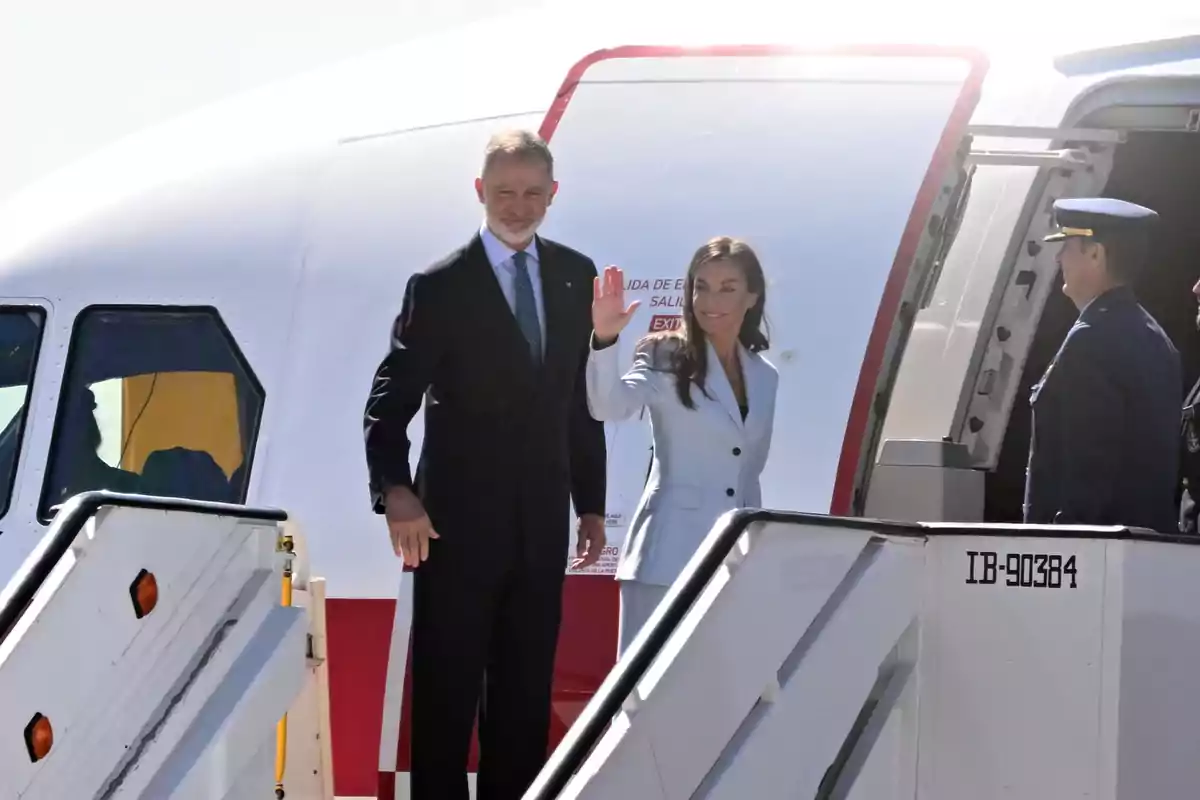King Felipe VI and Queen Letizia began their first state visitto Egypt this Tuesday. The visit, which will last until Friday, is in response to President Abdel Fattah Al Sisi's invitation and aims to strengthen bilateral relations in political, economic, and cultural spheres. With an international context marked by the war in Gaza, the agenda has taken on special significance.
The first day was dedicated to the Spanish community living in Cairo. With nearly one thousand compatriots in the country, Felipe VI and Doña Letizia wanted to convey closeness and support to the community. This gesture was interpreted as a show of the Crown's commitment to Spaniards abroad.

Today, Wednesday, official events continue, including the reception by the Egyptian president at Al-Ittihadiya Palace. Institutional meetings and a business forum are also scheduled. The trip also includes a visit to Luxor, where Spanish archaeologists are working on restoration projects with broad international recognition.

Royal security is fortified against new threats
The strengthening of the royal family's security has become a top priority for their chief of security. The proliferation of drones in armed conflicts and terrorist attacks has alerted security services in numerous countries. The case of Venezuela in 2018, when President Nicolás Maduro suffered an attack with drones loaded with explosives, marked a turning point.
In Spain, the Ministry of the Interior decided to act in conjunction with the royals' trip to Egypt. The purchase of two state-of-the-art anti-drone systems for the Royal Household Security Service was announced. These systems can block the signal of unmanned aircraft and neutralize them in a controlled manner.
The awarded company, ATL Europa, has accumulated experience supplying this technology to the Armed Forces and the Navy. The contract, valued at nearly €35,000, represents another step in the protection of the Crown.

A key decision during the trip to Egypt
The timing of contracting this service during the state visit is not coincidental. Sources close to the matter confirm that the decision to strengthen the security capsule was made while King Felipe VI was in Cairo. The monarch's chief of security interpreted that it was the ideal moment to activate this plan, given the growing international concerns.
Although the drone jammers will not be used during the visit to Egypt, their acquisition symbolizes a qualitative leap in security protocols. The Royal Household will now have a system already used by both the Navy and Civil Guard units in overseas operations.
The monarchs' return will bring with it the implementation of this additional protection. With this, the security of Felipe VI and his family will be adapted to new technological challenges. The trip to Egypt will thus go down in history not only for its diplomatic implications, but also for the protection of the Crown.

